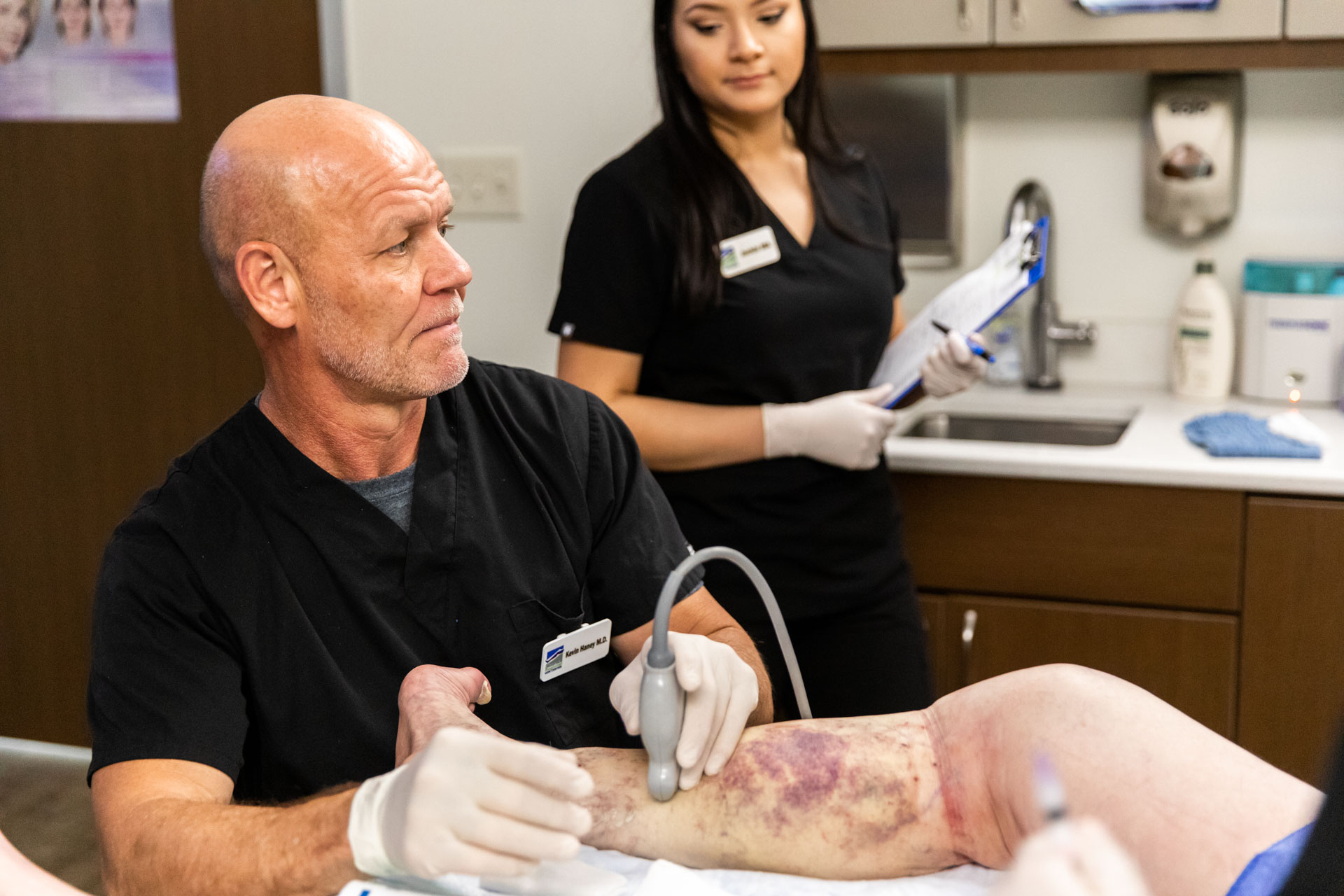The vascular system is an essential part of the human body. That much most people know. The vascular system is vital to our health and wellness, yet many people are unfamiliar with the basics of the circulatory system. As a result, it’s easy to not think about accompanying vascular healthcare. That’s where the vein and artery doctors in Rogers with the Ozark Regional Vein & Artery Center come in.
Your Trusted Vein Specialists
You know Dr. Haney and the incredible team at the Ozark Regional Vein & Artery Center for their work as premier vein experts in Rogers. With patients from all across Northwestern Arkansas, from Bentonville all the way down to Fayetteville, they’re trusted across the region to provide concierge-level care and the highest-quality vein treatments available. That, however, was where their treatment focused exclusively: your veins.
But Dr. Haney and his team want to provide the best service possible to the people of Northwest Arkansas. So they’re growing the family!
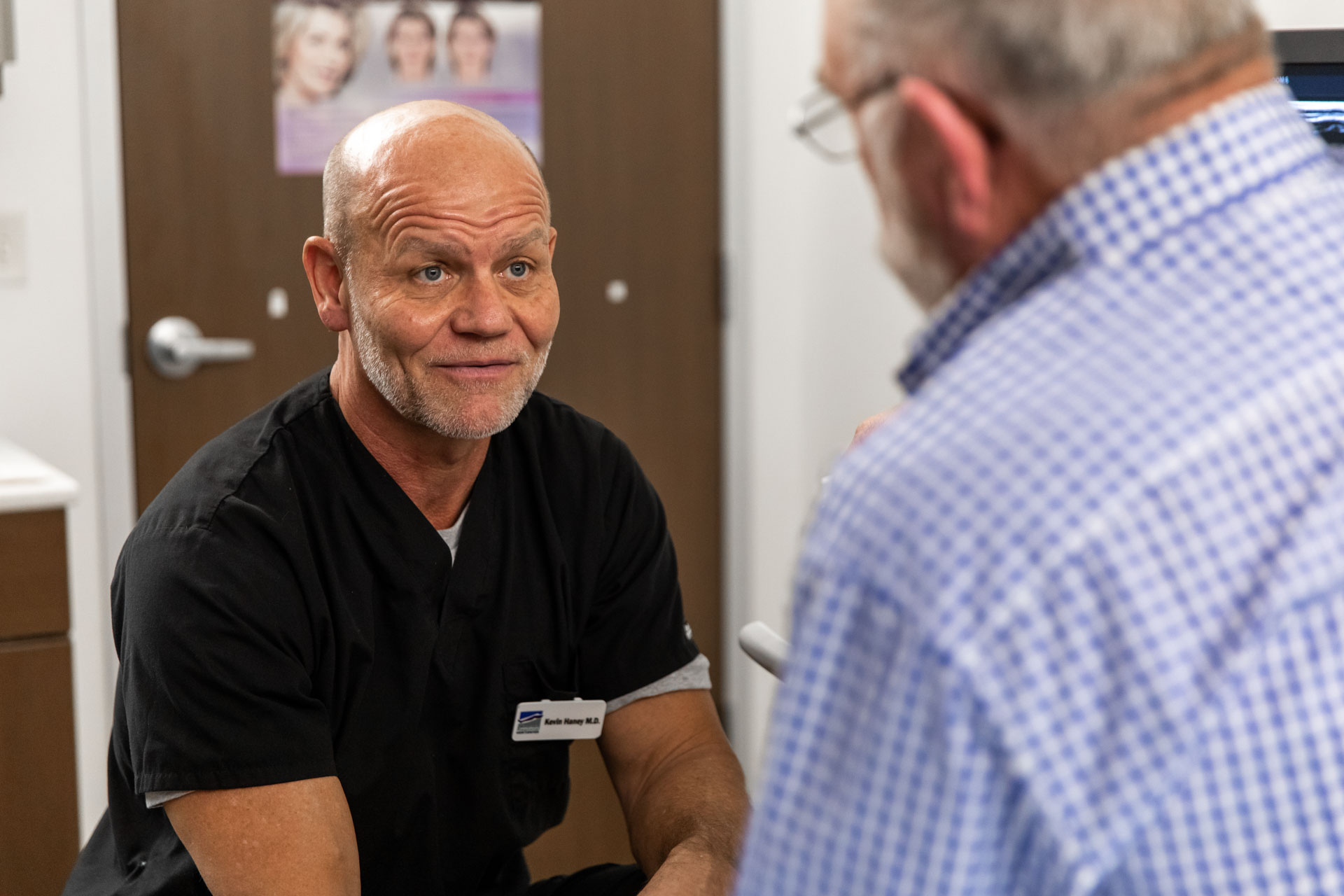
With the introduction of the Ozark Regional Vein & Artery Center, the Ozark Regional Vein & Artery Center team will become your one-stop shop for vascular care and wellness. While the team will provide the same level of care and in-depth patient education as before, we recognize this change may leave people wondering, “What exactly is the difference?”
This blog will provide you with a crash course in all things vascular health, from the difference between veins and arteries, to how your care and treatment will change depending on your needs. We hope you come away with a better understanding of the nuances of circulatory health and how we can best meet your vascular health needs.
Below is a comprehensive introduction to vascular health and what you can expect from the vein and artery doctors in Rogers.
Circulation 101
The basics: the vascular system is made up of blood vessels that carry blood away from and towards the heart.
The vascular system is responsible for the movement of blood throughout your body. Also known as the circulatory system, the vascular system delivers oxygenated blood to every region of the body. It then returns the used, deoxygenated blood to the heart for oxygenation and continued use. This process occurs every moment of every day.
This all allows for the continuous cycling of resources throughout your body to support stable metabolic function. Stable metabolic function is the conversion of nutrients into energy necessary for your body’s operation. For example, every time you eat or drink something, your body converts that food into calories and nutrients. These nutrients, along with oxygen, are sent around the body to keep everything working properly.
To keep the oxygen and nutrients your body needs going to the right place, your blood vessels only move in one direction. Arteries carry blood from the heart to different parts of the body. Afterward, your veins carry that depleted blood back to the heart.
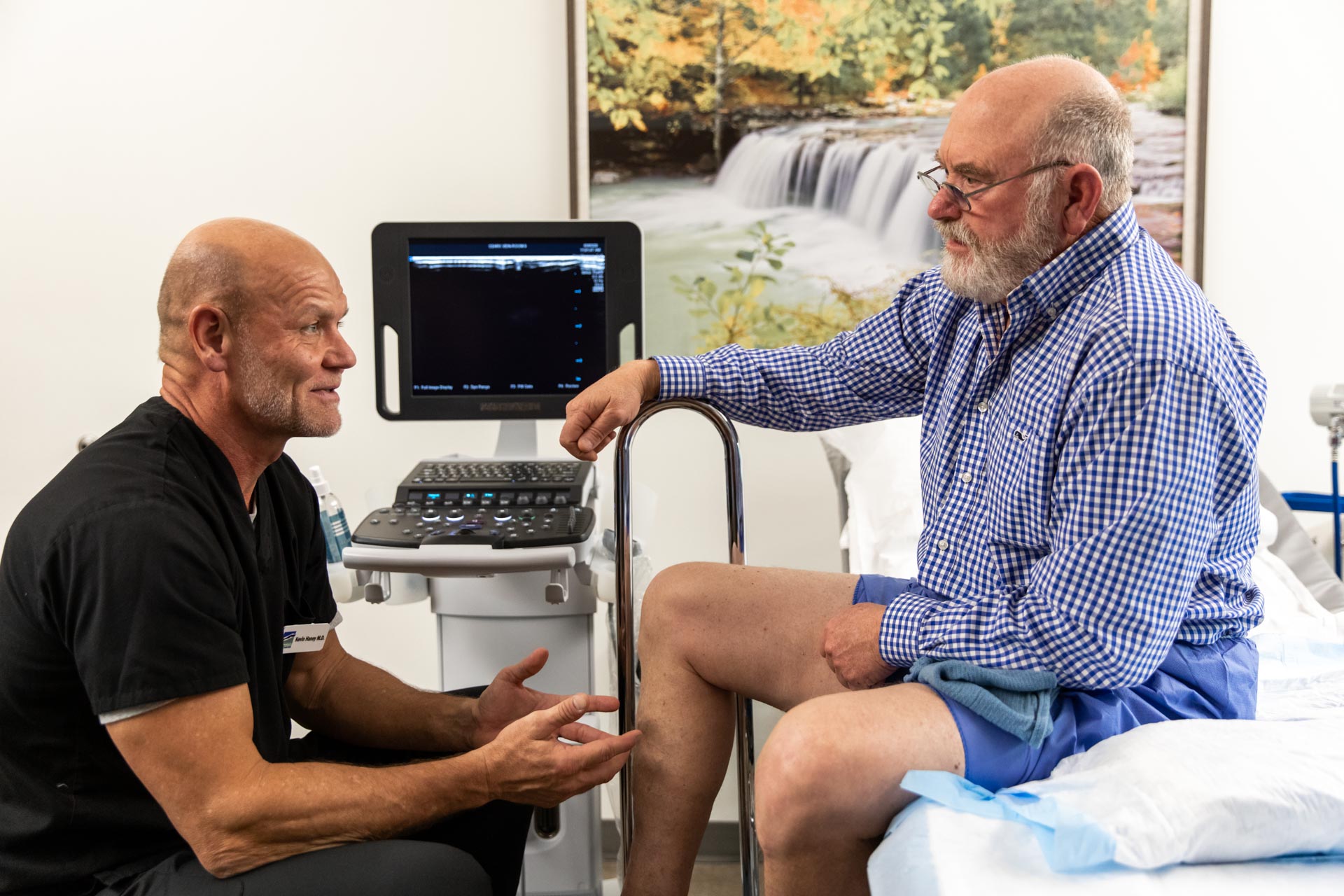
The breakdown of this process causes many of the health issues we treat at our vein and artery clinic.
The heart and circulation
Though not immediately treated by vein and artery doctors, as it is the focus of cardiovascular doctors, the heart is the cornerstone of the vascular system. You cannot talk about the heart without understanding the role of veins and arteries.
The heartbeat moves blood throughout the body, generating the pressure to sustain the healthy flow of blood in your blood vessels. After all, all the blood in your body passes through the heart at some point! First, when it carries resources to your tissues and organs, and then again as it is brought back into the heart. From there it’s pumped into the lungs to pick up oxygen for its next journey.
As such, it is important to recognize its role in vascular health. Engaging in heart-healthy behaviors like not smoking, eating a healthy diet, and exercising, improves overall vascular health. Likewise, damage to one fundamentally impacts the other.
The Role of Your Arteries
An artery is a blood vessel that conducts blood from the heart to the rest of your body. Every artery in your body carries oxygenated blood–excluding the pulmonary artery, which carries unoxygenated blood to the lungs to pick up oxygen.
The largest artery in the body is the aorta, which has four distinct parts:
- Ascending aorta
- Aortic arch
- Thoracic aorta
- Abdominal aorta
The ascending aorta carries oxygenated blood out of the left ventricle of the heart and into the aortic arch. Your aorta then descends through the chest and abdomen by way of the thoracic aorta and abdominal aorta, respectively. From there, it splits into branches that supply all the body regions with the nutrient-rich, oxygenated blood they need.
Your arteries don’t face the same medical issues that your veins do. For example, your arteries are the problem area in question when discussing healthy or unhealthy cholesterol levels. Some problems specific to the arteries are Peripheral Artery Disease, Carotid Artery Disease, and Atherosclerosis.
Learn Why You Should See an Artery Specialist in Rogers→
The Role of Your Veins
A vein is a blood vessel that conducts blood from your tissues, organs, and bodily extremities back to the heart. The majority of veins carry deoxygenated blood from the tissues back to the heart, with the only exceptions being the pulmonary and umbilical veins. Both the pulmonary and umbilical veins carry oxygenated blood to the heart, one from the lungs and the other from the placenta during pregnancy.
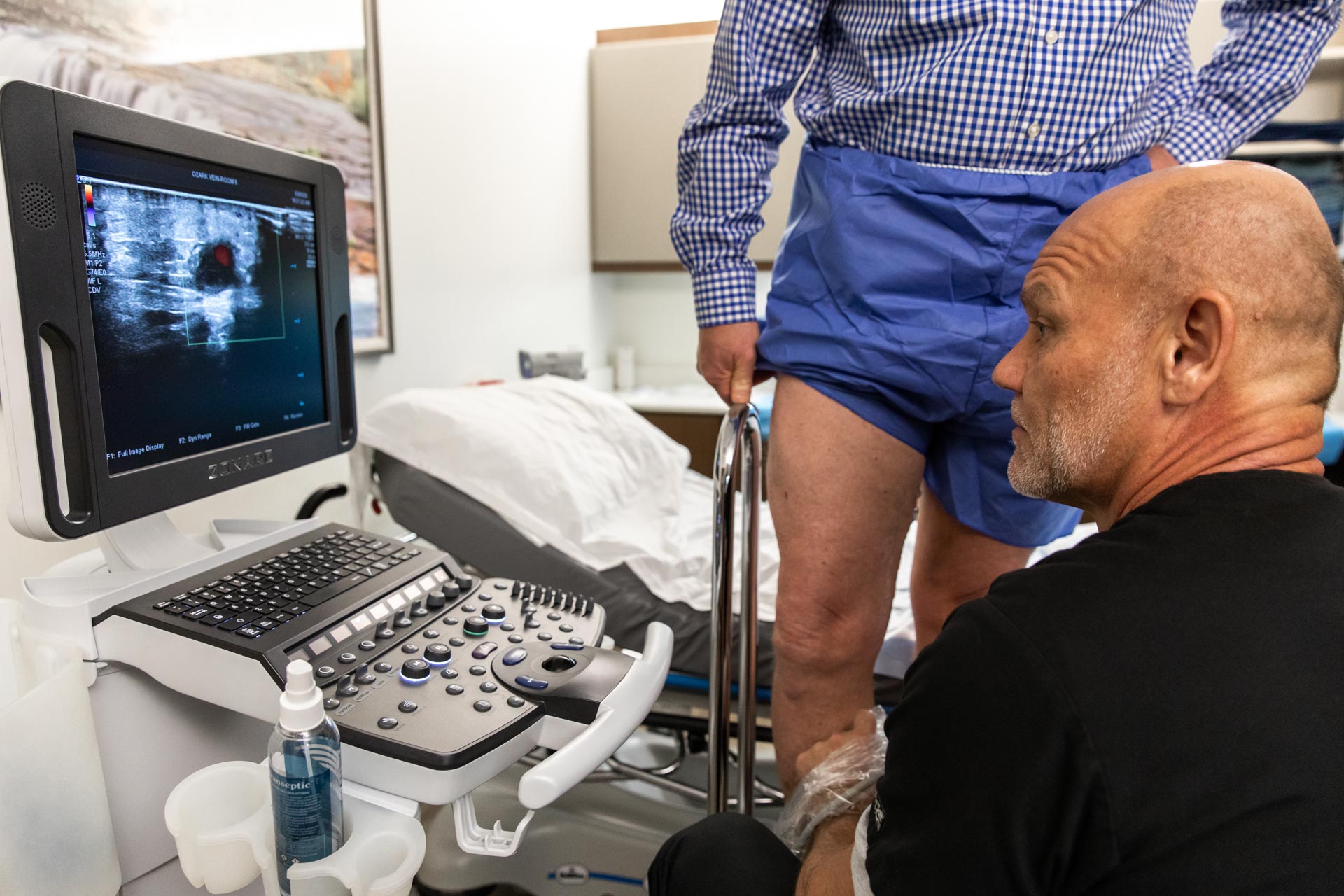
Unlike arteries, veins often must work against gravity to return blood to the heart. As a result, they require natural assistance from certain parts of your body. The leg muscles help with this process, and there are valves within these blood vessels that keep moving blood from flowing back down toward the feet. The heart itself is also a natural part of this process; its pumping creates the flow that can help force blood up and through the veins.
As a result of the gravitational strain on your veins, the breaking down of venous function, or venous insufficiency, can be incredibly dangerous to your health. The pooling or reflux of waste blood can cause pain and discomfort or serious health concerns, such as varicose veins, Stasis Dermatitis, or Ulcers. Any of these issues can be a serious risk if not addressed quickly and safely by trained professionals.
Learn why you should visit a vein center in rogers for leg pain→
The Difference Between Vein and Artery Doctors in Rogers
There are some key distinctions between vein and artery doctors in Rogers. Though both are true, certified M.D.s, their areas of expertise are specialized enough to warrant further explanation.
Vein Specialists
When we talk about vein doctors, we’re really talking about vein specialists. Vein specialists are medical professionals from various medical subspecialties who have specialized training in treating veins throughout the body. The most common are Cardiologists, Interventional Radiologists, and Dermatologists.
Physicians from these groups are certified by the American Board of Medical Specialties (ABMS) in their respective fields and are proper doctors. Dr. Haney, for instance, is a Radiologist certified in treatment options for varicose veins, including minimally invasive Endovenous Laser Ablation. Cardiologists, Interventional Radiologists, and Dermatologists have all had extensive procedural and medical training and are all ABMS certified specialties. As such, Dr. Haney is an expert in meeting all your surgical or conservative vein treatment and long-term care needs.
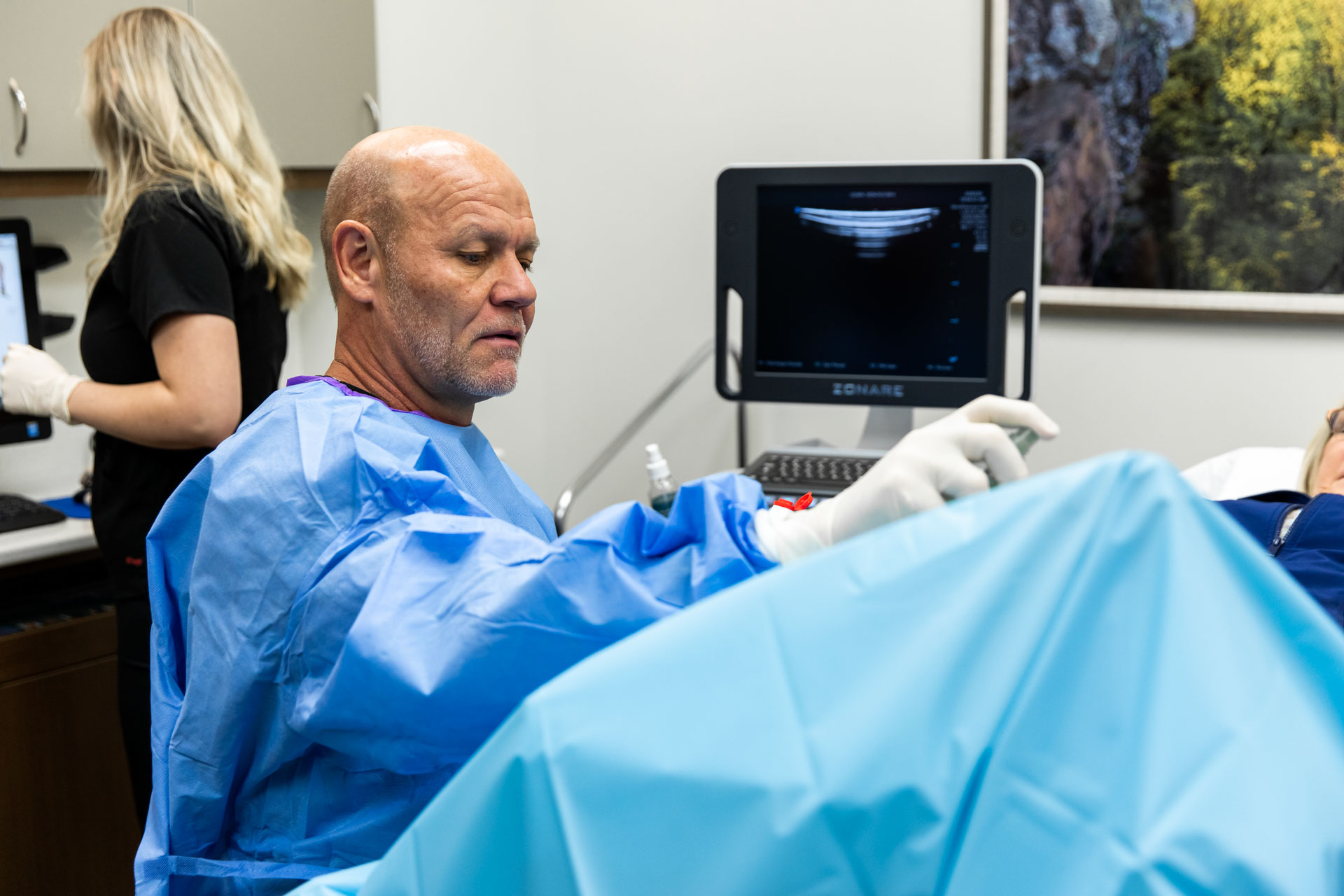
Vascular Surgeons
Likewise, when you think of an artery doctor, who you’re actually thinking of is a Vascular Surgeon. Vascular surgeons are medical doctors who have, by completing a General Surgery Residency Program and then Vascular Surgery Fellowship, been ABMS Board Certified for vascular surgery.
This specialty is one of only specialties that include training in operative management and the medical care of patients with diseases of the blood vessels. Vascular Surgeons are certified to work on veins and arteries. Still, they often spend most of their time on arterial work, given the prevalence of arterial diseases in the United States and abroad. This specialty is incredibly rigorous and necessitates an incredible amount of work to receive ABMS Board certification.
Learn about the Role of Vascular Surgeons in your Artery Health→
Maintaining Your Overall Vascular Health
Now, when you turn to the Ozark Regional Vein & Artery Center team, you will receive comprehensive vascular care. No matter the issues you are struggling with! Be it arterial disease, varicose veins, wound care, or a cosmetic procedure. The Ozark Regional Vein & Artery Center will have you covered.
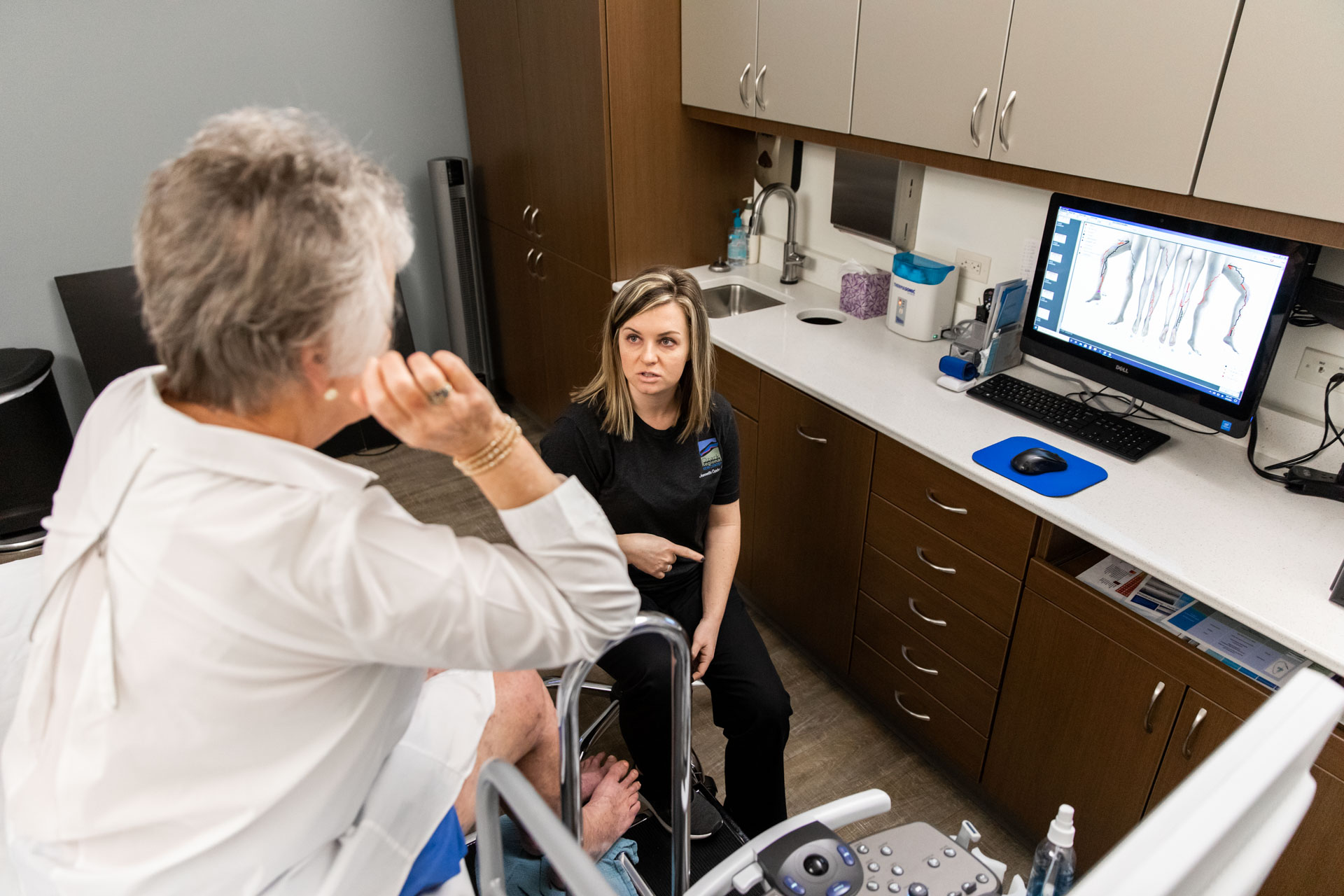 Our clinic cannot wait for the Northwest Arkansas Community to meet the new team members of the Ozark Regional Vein & Artery Center. As his practice has grown, Dr. Haney has always prioritized his patients and the community they serve. This expansion is no different. The new members of his team understand Dr. Haney’s legacy of community involvement, patient education, and concierge-level care.
Our clinic cannot wait for the Northwest Arkansas Community to meet the new team members of the Ozark Regional Vein & Artery Center. As his practice has grown, Dr. Haney has always prioritized his patients and the community they serve. This expansion is no different. The new members of his team understand Dr. Haney’s legacy of community involvement, patient education, and concierge-level care. The Ozark Regional Vein & Artery Center is excited to bring a new suite of cutting-edge services to the practice in Rogers! This will provide new avenues for expert treatment and service to the people of Rogers and nearby communities like Bentonville, Fayetteville, Lowell, and Springdale.
Turn to the Ozark Regional Vein & Artery Center
If you require vein and artery doctors in Rogers, come to the Ozark Regional Vein & Artery Center. Our experience and growing suite of care options enable us to guide you toward lasting wellness solutions for a happier, healthier life.
We are a premier practice in Northwest Arkansas for all the highest-quality vein treatments available. Dr. Haney and the expert staff have over 75 years of combined experience in the industry. Patients come to Dr. Haney from all over Northernwestern Arkansas, from Fayetteville to Bentonville, to ensure they receive the best concierge-level care and leg vein procedures available.
After all, helping people is what we do. It is our mission to provide the people of Northwestern Arkansas and beyond with the absolute best care possible. Our ever-expanding areas of expertise and commitment to patient education help us to achieve meaningful results for our patients each and every time.
Lead the charge on your vascular care with our Instant Vein & Artery Screening Quiz or by scheduling a consultation.

